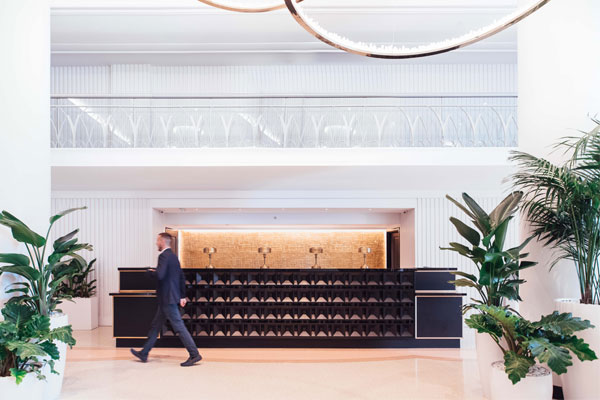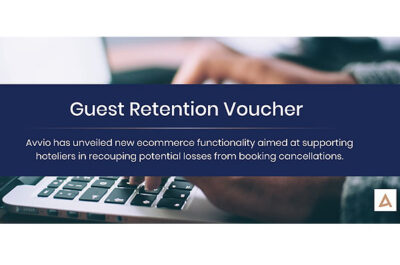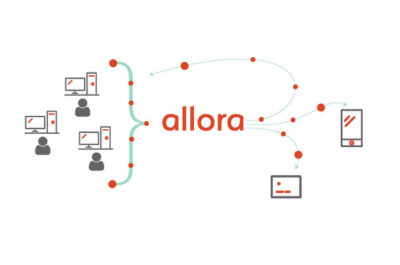Reflecting on my first year at Avvio, here’s some of my insight to what’s coming next and how things will shape up and advance over the coming year and possibly beyond.
1 . Google will become the world's biggest travel agent (or will they?)
Google Travel launched its app in September 2016, and from May this year it has evolved into a desktop application. This is really interesting in itself. We all bang on about ‘mobile first’ and rightly so. Discovery is critically important but often we see trends where desktop still dominates as the physical booking device of choice.
Think about it – you’ve done what feels like endless hours of research trying to decide where to go on holiday and then where to stay, all starting with Google.
You may have looked at prices via a Meta search company like Google itself, or Trivago, TripAdvisor, etc. and then you go back to your favourite OTA to book (a lot of ‘toing and froing’).
Just before you book, you might well go to the hotel’s own website to make your final selection so that you can feel good about your choice and look at the better imagery, videos and other assets that you wouldn’t find on an OTA or elsewhere.
Then you need to confirm with your partner, best mate or family and, boom – it’s desktop time, to complete the transaction “definitely the Hotel Paradise not the Flamingo Apartments?”. Then you’ll receive your email confirmation (followed by the dreaded credit card bill the following month!).
This current booking journey makes sense…at least for now. Go back two years to 2017 and Google raked in nearly $100 billion in advertising revenues.
There’s a lot to consider. Google is already the biggest travel agent on earth – 2019 is a world where time is precious, so the ability to “Google it” is a god send.
2. The rise of the robots
The proliferation of artificial intelligence (AI) and the rise of machine learning algorithms makes us realise this won’t mean Arnold Schwarzenegger is about to come steaming down your local high street warding off horrified onlookers.
In fact, AI is already benefitting in really useful ways.
We already benefit from highly curated content served to us using preferences from millions of like-minded similar profiles to our own, enabling us to cut through thousands of product lines to get what an AI algorithm knows you want. One recent example is how Amazon is working with the NHS in the UK to get Alexa to advise on non-emergency health conditions. Just by asking for help, AI has weaved its way into our everyday lives.
The potential for this is immense in the hospitality sector. From advance bookings to deeper agent style applications serving you everything the web has to offer. Voice control in rooms to non-human assistants bringing you your room service order; AI is rapidly becoming the dominant force.
I'm not convinced it’s the next industrial revolution but it has prolific and endless possibilities – from helping to maximise pricing and occupancy by predicting trends and analysing market circumstances based on events in the local vicinity, to enhancing guest experiences offering a helping hand.
3. Conversion rate is dead – stop using that as a metric
Curating personal experiences online and offline is key to winning hearts and minds be it for business or leisure travel.
In an online world where the journey probably starts with Google, the ability to look at how “intent signals” across multiple sessions on multiple devices is increasingly important.
Research from Expedia shows the average holiday takes a UK consumer nearly six weeks research ahead of a booking taking place across 38 different web sessions and on multiple devices. How on earth do you expect a traditional marketing funnel to play out given that trend?
Guest conversion is a new model that takes into account time, devices and sessions and will pick up on these intent rich signals as time passes. Combined with AI this becomes increasingly powerful and means you have the potential to learn more about an individual guest. For example, you get an IP address from a particular country, you get a date range, golf or spa pages, etc. so essentially you get to learn more about what they might be looking for.
Machine learning across multiple properties, groups and countries will allow you to start displaying the right information at the right time which in turn leads to a higher rate of booking – ideally direct as it’s the most cost efficient for hoteliers and often provides the best guest rate on the consumer side.
4. Websites are evolving to personalised ecommerce tools
For hotels, knowing what we know about traditional conversion rates, you also now need to evolve your website strategy to think ahead and start becoming a robust profit centre rather than a glorified, expensive online brochure.
Most businesses tend to look at renewing websites every two or three years and update pages with imagery, videos and perfect copy.
While this is all still important, hotels should adopt personalised ecommerce as a tool for 2020. A hotel business is almost identical to a retail store – they sell pretty much everything now.
From the traditional rooms, food and drinks, hotels now look to sell extras unless it’s a packaged rate. Breakfast, champagne in the room, flowers, chocolates, even a choice of pillows, duvets and robes are just some examples.
My recommendation is to keep learning from the airlines who pioneer basic packages with add-ons and have done so for years. In the early days of EasyJet, people thought the idea of paying extra for drinks on board, even for a short haul flight, was absurd. Nowadays we pay for checked baggage, extra foot room and to sit together – the low budget airlines even flirted with standing room only!
I've heard of one airline that is now experimenting with basic business class where you get a flatbed on long haul flights but none of the extra luxuries like champagne and a prime steak, all washed down with the finest bottle of wine. We as consumers want a tailored, personalised package that makes sense for our own individual needs and budgets.
5. Boom or Bust
With the UK poised to leave the European Union and all the uncertainty this brings, given 70% of the hospitality workforce in London is employed from outside the UK but within the EU, and the United States reaching all time low unemployment rates, high earnings and low interest rates not to mention Donald Trump, these are all factors that need to be taken into account.
The rise of the super wealthy nations like China are poised to take over from the US as the wealthiest region on earth, and our global financial cycles are at a peak. Interest rates in the Europe zone remaining low breeds both positive and negative speculation. Alongside, several major South American countries are on the edge of financial collapse, I think we are nearing the end of the boom times for now and will likely head for a drop.
The first market to be affected is usually travel. The big corporates tighten their belts with travel bans for all but essential travel. The premium world of business class flights is ruled out on business travel policies in favour of turning right to sit with the bucket and spade brigade and hotels will drop occupancy rates as folks favour saving overspending.
Hotels will have to adapt and can learn from emerging micro-trips / mini-holidays, where instead of a traditional British annual two weeks away (four weeks if you’re German), we might learn from the millennials who seek three or four day-long weekend experiences to recharge and refresh. I see commission rates falling as channels serve hotels and subscription models being adopted in favour of commission, offering a line of sight of expenditure and appeasing the owners.
Overall, exciting and changing times lay ahead with a splattering of uncertainty to keep us all on our toes. The hospitality sector is experiencing an evolution as we head towards 2020.
We are at the heart of it serving our guests as they need to be served. Power to the people!
Michael De Jongh is CCO in Avvio.









































































































































































































